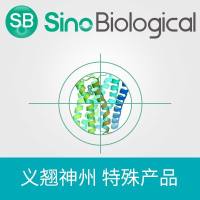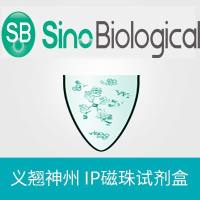Synthetic Peptide Libraries for T-Cell Epitope Identification
互联网
773
This chapter describes a methodology for elucidating immunogenic epitopes stimulatory for CD4
+
T-cell clones (Fig. 1 ). The methodology makes use of synthetic peptide libraries and must be regarded as an alternative to other approaches, such as peptide elution or the application of genetic libraries. The methodology only requires knowledge about the restriction element of the T-cell clone. The restriction element determines which major histocompatibility complex (MHC)-binding anchor motif must be built into the library peptides. A synthetic peptide library is prepared comprising approx 8 million peptides. The synthesis proceeds via a mix-and-split protocol using a solidphase approach on a hybrid resin (
1
,
2
). On a hybrid resin, most of the peptide material (84%) is attached via an acid-labile linker whereas the remaining part of the peptide material is acid-stable attached (
3
). During synthesis, resinbound peptides comprising 14 amino acid residues are produced, with each resin bead containing one unique peptide (
4
,
5
). The beads are split into 384 pools, with each pool containing 20,000 beads. From each pool, about 28% of the peptide material is cleaved from every bead. Subsequently, in the first screening round, the 384 pools, each containing 20,000 solubilized peptides, are tested in a proliferation assay with the T-cell clone.
Fig. 1.
Flow diagram of the complete procedure for the identification of T-cell epitopes using synthetic peptide libraries (
1
).









